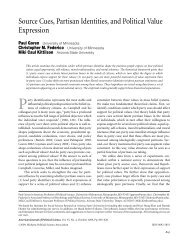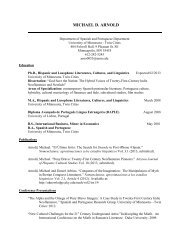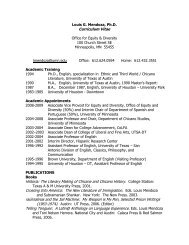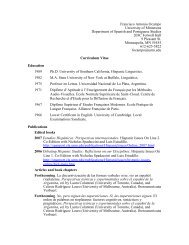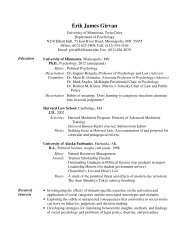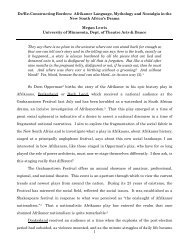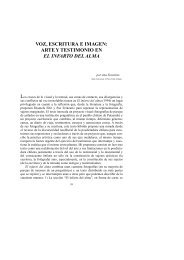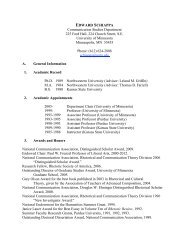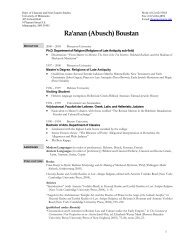A DISSERTATION SUBMITTED TO THE FACULTY OF THE ...
A DISSERTATION SUBMITTED TO THE FACULTY OF THE ...
A DISSERTATION SUBMITTED TO THE FACULTY OF THE ...
Create successful ePaper yourself
Turn your PDF publications into a flip-book with our unique Google optimized e-Paper software.
eak from further elaboration within a given topic in order to transition to a new one.<br />
Therefore, the contrast is realized with the introduction of new topics.<br />
It is this contrastive action, i.e. breaking with prior content, which allows for smooth<br />
transitions into what may be new and unrelated content within a narrative. As a result,<br />
the use of idash has an additive effect, since it helps to organize topics and events within<br />
the development of a story. The following example illustrates this additive effect. The<br />
use of idash in the following excerpt of a narrative shows how idash is used by a narrator<br />
to provide information about three different participants in a story: a brave, his wife, and<br />
the curtain of their wigwam. In this story, some Ojibwes went out to search for their<br />
enemies, the Dakotas. This excerpt includes an explanation of the seating arrangement of<br />
an Ojibwe brave and his wife within their lodge, as well as an explanation as to the kind<br />
of door they had on that lodge. A Dakota brave then enters their lodge, and the brave<br />
being startled and frightened jumps over the fire in the lodge and falls down. The brave’s<br />
wife, showing here bravery, then picks up a axe and clubs the Dakota over the head.<br />
(52) idash (Nichols 1995:54-55, story told by Jim Littlewolf) 47<br />
a) Gii-miigaadim ingwana imaa, gaa-tazhi-miigaading gii-kabeshiwaad.<br />
there was a battle turns out there where the battle was they were camping<br />
b) Mii imaa gii-miigaadiwiingen imaa dazhi-gabeshiwaad.<br />
DP there there must have been a battle there where they camp<br />
c) Wiiwan-sh odayaawaan;<br />
and his wife he had her<br />
47<br />
It is very difficult to accurately to provide a translation for the words mii and idash in these examples.<br />
Deictic particle mii can have various translations depending on its use, and while idash may be translated as<br />
‘but’ in sentence level uses, this translation is many times infelicitous in its discourse use. For this reason, I<br />
have chosen to gloss mii as DP (“deictic particle”) and idash as DM (“discourse marker”).<br />
103



